Search
for
Sort by
Research
30 / 119 results
research Scientific Opinion on the Tolerable Upper Intake Level for Selenium
Adults should not consume more than 255 micrograms of selenium per day to avoid risk of hair loss and other side effects.

research Controversies in Plastic Surgery: Suction-Assisted Lipectomy and the hCG Protocol for Obesity Treatment
The document concludes that the hCG protocol may help in obesity treatment and could be scientifically justified, but more research is needed.
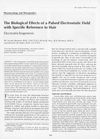
research The Biological Effects of a Pulsed Electrostatic Field with Specific Reference to Hair Electrotrichogenesis
A pulsed electrical field safely and effectively increased hair growth.

research Abstracts of 42nd National Conference of Association of Clinical Biochemists of India (ACBICON 2015)
The conference presented findings on how vitamin D levels, genetic factors, and lifestyle choices like smoking and yoga affect various health conditions and diseases.

research Regenerative Medicine Strategies for Hair Growth and Regeneration: A Narrative Review of Literature
New regenerative treatments for hair loss show promise but need more research for confirmation.
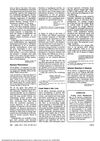
research Wording Creates Misunderstanding
A drug helped quickly reduce a movement disorder, experts debated the severity of Raynaud phenomenon, and rapid weight loss was linked to temporary hair loss with good recovery.
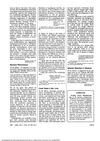
research Adverse Reactions to Enemas
Enemas can cause septicemia in elderly men with prostate infections.
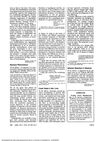
research Raynaud Phenomenon and Long-Term Risks
Most people with Raynaud's won't get serious diseases, but doctors should watch for signs over time; also, quick weight loss can cause hair loss.

research Crash Dieter's Hair Loss
Rapid weight loss can cause temporary hair loss, but hair usually grows back.
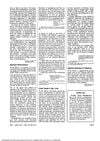
research Raynaud Phenomenon - Reply
Doctors disagree on whether Raynaud phenomenon often leads to serious diseases, but agree that patients should be monitored for possible progression while being reassured. Rapid weight loss may cause hair loss.

research Hereditary, Congenital, and Acquired Alopecias in Dogs and Cats
The conclusion is that different types of hair loss in dogs and cats can be cosmetic or serious, and affected animals should not be bred.

research Epidermal Stem Cell Fate: What Can We Learn from Embryonic Stem Cells?
Embryonic and adult stem cells are valuable for improving skin grafts and cell therapy.
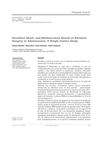
research Excellent Short- and Medium-term Results of Bariatric Surgery in Adolescents: A Single Center Study
Bariatric surgery is safe and effective for treating adolescent obesity.
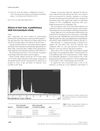
research Silicon in Hair Loss: A Preliminary SEM Microanalysis Study
The study suggests silicon might be important for healthy hair, as less silicon was found in people with hair loss.
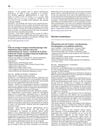
research Adult Phenylketonuria: Neurological Manifestations and Evolutionary Modalities
Proper diet management is crucial for preventing severe symptoms in phenylketonuria.

research Skin Commensal Antigens: Taking the Road Less Traveled
Skin bacteria can help wound healing by activating certain immune cells.

research Hereditary, Congenital, and Acquired Alopecias
Different types of hair loss in dogs and cats have various causes and treatments, with outcomes ranging from good to uncertain.

research Hereditary, Congenital, And Acquired Alopecias
Alopecia in animals can be hereditary, congenital, or acquired, with treatments and outcomes varying widely.

research A Randomized, Active- and Placebo-Controlled Study of the Efficacy and Safety of Different Doses of Dutasteride Versus Placebo and Finasteride in the Treatment of Male Subjects with Androgenetic Alopecia
Dutasteride 0.5 mg works better than finasteride and placebo for increasing hair in men with hair loss.

research Using a Capture–Recapture Method to Assess the Frequency of Adverse Drug Reactions in a French University Hospital
The study found that combining different databases gives a better estimate of drug side effects in hospitals.

research CD98hc (SLC3A2) Regulation of Skin Homeostasis Wanes With Age
CD98hc's role in skin health decreases with age.

research Lipid Nanoparticles for Topical and Transdermal Application for Alopecia Treatment: Development, Physicochemical Characterization, and In Vitro Release and Penetration Studies
New lipid nanoparticles show promise for delivering hair loss treatments but need improvement for better skin penetration.
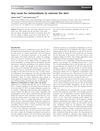
research Any Route for Melanoblasts to Colonize the Skin
Melanoblasts migrate to the skin using various pathways, and understanding this process could help with skin disease research.

research In Vivo Penetration of Bare and Lipid-Coated Silica Nanoparticles Across the Human Stratum Corneum
Lipid-coated silica nanoparticles penetrate human skin more deeply than bare silica nanoparticles.
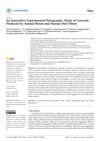
research An Innovative Experimental Petrographic Study of Concrete Produced by Animal Bones and Human Hair Fibers
Concrete made from animal bones and human hair is stronger and more environmentally friendly than traditional concrete.

research Symptom Management in Inflammatory Bowel Disease
Effective symptom management in IBD improves quality of life and prevents complications.
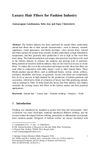
research Luxury Hair Fibers for the Fashion Industry
The industry should promote pure luxury hair fibers, improve technology, and diversify products to support growers and ensure sustainable use.

research Linking Allergy to Mercury to HLA and Burning Mouth Syndrome
Mercury allergy linked to specific genes may contribute to burning mouth syndrome, and silicon might play a role in maintaining healthy hair.

research Polycystic Ovary Syndrome: A Psychosocial Approach
Polycystic ovary syndrome (PCOS) significantly impacts women's emotional well-being and social lives, requiring treatments that include psychological support.